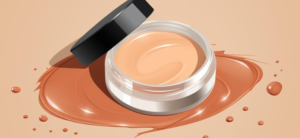In the current times when the definition of beauty seems to shift every other day, the pronunciation of the name, Botox, is now typical among the masses. This seems to be the case because a host of individuals seem to regard this cosmetic treatment as completely worth eliminating the traces of age that are wrinkles.
But behind the glitz and glamour associated with Botox, there have been some questions and controversies that have raised the stakes in the argument: Is there truth in the rumor that Botox can lead to cancer?
Considering that more people are using this injectable, this becomes a premise whereby not only the advantages but the area of concern also warrants attention.
Boasting remarkable efficacy in wrinkle management and skin revitalization, Botox injections have gained worldwide popularity.

What is Botox and how does it work?
Botox, as it is better known, is the botulinum toxin, which is a kind of neurotoxic protein that comes from the bacteria Clostridium botulinum. Its application, which was developed mostly to combat migraines and uncontrollable sweating, was later adopted in the cosmetic market.
In those muscles where Botox is injected, the nerve signal that makes the muscle contract is blocked through the nerve channels. These areas are temporarily paralyzed when injected, leading to diminished wrinkles and smoother skin.
Aspiring candidates appreciate the speed and very limited invasiveness of the procedure that can be done for almost instant gratification. While undergoing the injections, most patients complain of no more than mild pain.
Apart from its cosmetic features, Botox is also used to treat. It can assist in treating disorders in the muscular system as well as other sorts of chronic pain. Nonetheless, it is crucial to know how the treatment will interact with your body before proceeding with such a powerful substance.
Studies on the link between Botox and cancer
There is massive interest and research concerning the possible relationship between Botox and any other form of cancer. Some studies attempted to verify if Botox injections could in any way lead to the development of cancer or progression of the already existing one.
Some animal studies did suggest that excessive amounts of botulinum toxin injections may cause abnormal cell growth. But, these results are rather assumed inconclusive with no additional human research involving them.
As far as the majority of practitioners and researchers are concerned, there is no plausible link between cancer and Botox’s mechanism of action, particularly muscle relaxation. The doses given for aesthetic purposes are considerably lower than those used in controlled conditions.
As a matter of fact, most controlled studies of humans and long-term follow-ups report no association between any cancer type and the use of Botox. However, currently undertaken studies are watching this aspect because of the incorporation of new cells and subsequent changes in the environment.
Controversies surrounding Botox and cancer
There has been a lot of controversy regarding the relationship between Botox and cancer. Some researchers claim that the absorption of neurotoxins in muscle activities may help tumor development. This theory, however, remains largely unproven.
On the other hand, the majority of cosmetic practitioners claim that Botox is safe for aesthetic purposes. They stress its widespread use, in medicine, for a long period without being associated with the formation of cancers.
There is an addition of social media networks also to these concerns. Alas, such distortion of information often leads the public to go in for a treatment believed to be effective with some fear.
Also, when adverse outcomes are reported, for instance, palpably potential patients may develop apprehension towards the usage of products like Botox. While vignettes are persuasive, they cannot stand on scientific evidence, which does not augur well for Botox usage for safety concerns.
These controversies pose more questions than they answer, with regards to an already pronged area of study – the interrelationship between issues of beauty and their associated health hazards.
The FDA’s stance on Botox safety
The FDA has a well-defined position on the safety of Botox. Since 1989 when the drug first received approval for the treatment of an eye disorder, the FDA has kept a close eye on it. Presently it has a lot of cognizance in terms of its cosmetic benefits too.
Botox is used in medicine, not only in the cosmetology clinics. For instance, chronic migraines and excessive sweating are some of the problems it can treat. The safety of users is continuously ensured as the FDA tracks every negative impact reported.
It is necessary for the manufacturers to give warnings regarding the side effects and risks. Mild bruising at the sites of injections is common, while life-threatening responses such as respiratory impairment are very infrequent.
The FDA accepts the therapeutic effectiveness of Botox, but they place emphasis on the fact that it should be carried out by a specialist. It significantly helps to reduce risks as well as improve the effective outcomes of the patients.
Other potential risks of using Botox
Botox is considered to be safe when it is performed by a qualified professional; however, it does have some risks.
Some patients experience chills soreness or swelling around the area that received the injectable as a result of the procedure. Such effects are often short-lived but are likely to be painful to some people.
Such manifestations are possible as dysphagia and dysphonia, and these are more of a threat when the toxin leaches outside of the intended deposition area. It is uncommon, although it should not be ignored.
Headaches are reported by patients after some treatment, and they may remain for days in particular cases. There are cases, also, of sagging of the upper eyelid or asymmetric facial expression if the site of the injection is inappropriate.
On top of the physical effects, there is a mental one that needs to be addressed. With appearance being a concern of some users, some of them are made to receive numerous treatments, fuelling the worries around safety and health in the long run.
Professional help should be sought out prior, to performing any sort of cosmetic procedure such as Botox.
Tips for safe Botox use
Making the decision as to whether or not to get Botox is a very subjective decision to make. To reduce the risks involved and increase the chances of obtaining your desired outcomes, use the following tips.
First, only proceed to see a practitioner that is fully registered and licensed. Always use a certified Botox specialist to lessen the chance of complications. Do not be too hasty in booking an appointment- read some reviews first.
The next strategy requires you to tell the provider about your previous illnesses. This will enable physicians to devote time to certain health problems that may increase the risks of these procedures or spite them altogether.
There are a few key things you need to keep in mind when getting Botox made. Doing so may save you heartache later because you did not expect certain results to happen when they should not have been expected in the first place.
For 24 hours before treatment, do not take blood thinners like aspirin or drink alcohol. This decreases the chances of bruising developing in injection areas.
There are some specific aftercare measures for a patient who has had Botox which must be followed by the patient. At least for the first 24 hours, intensive exercising should be avoided so that the product can appropriately settle in.
Observe how your body behaves after the treatment and do not hesitate to report the side effects you experience. Your health should always come first.
Is there a definitive answer to the question?
The question of the ability of Botox to cause cancer has elicited a fair amount of chatter and research. While some studies have made such attempts, their findings are rather inconclusive or contradictory to each other.
Many investigators accentuate that Botox’s problems arise when it is not performed in a competent manner by a qualified physician. FDA acknowledges its safety and performs various medical functions and beautification means for the public.
Nonetheless, this is not to say that there are no disputes within the medical field or even from the consumer’s side. The issue of the risks associated with prolonged use is never fully alleviated, with most people calling for more studies to avoid jumping to the main point.
Experience is vital while performing Botox since it can damage a lot of tissues if not injected properly. Qualified experts should inform you about every detail of the procedure and help you make the right evaluation based on your health record.
So where does this leave us? While there is much that remains unknown as to whether or not Botox has any correlation with cancer, being cautious and doing your research will always serve you best in considering any sort of laser hair removal procedure.



